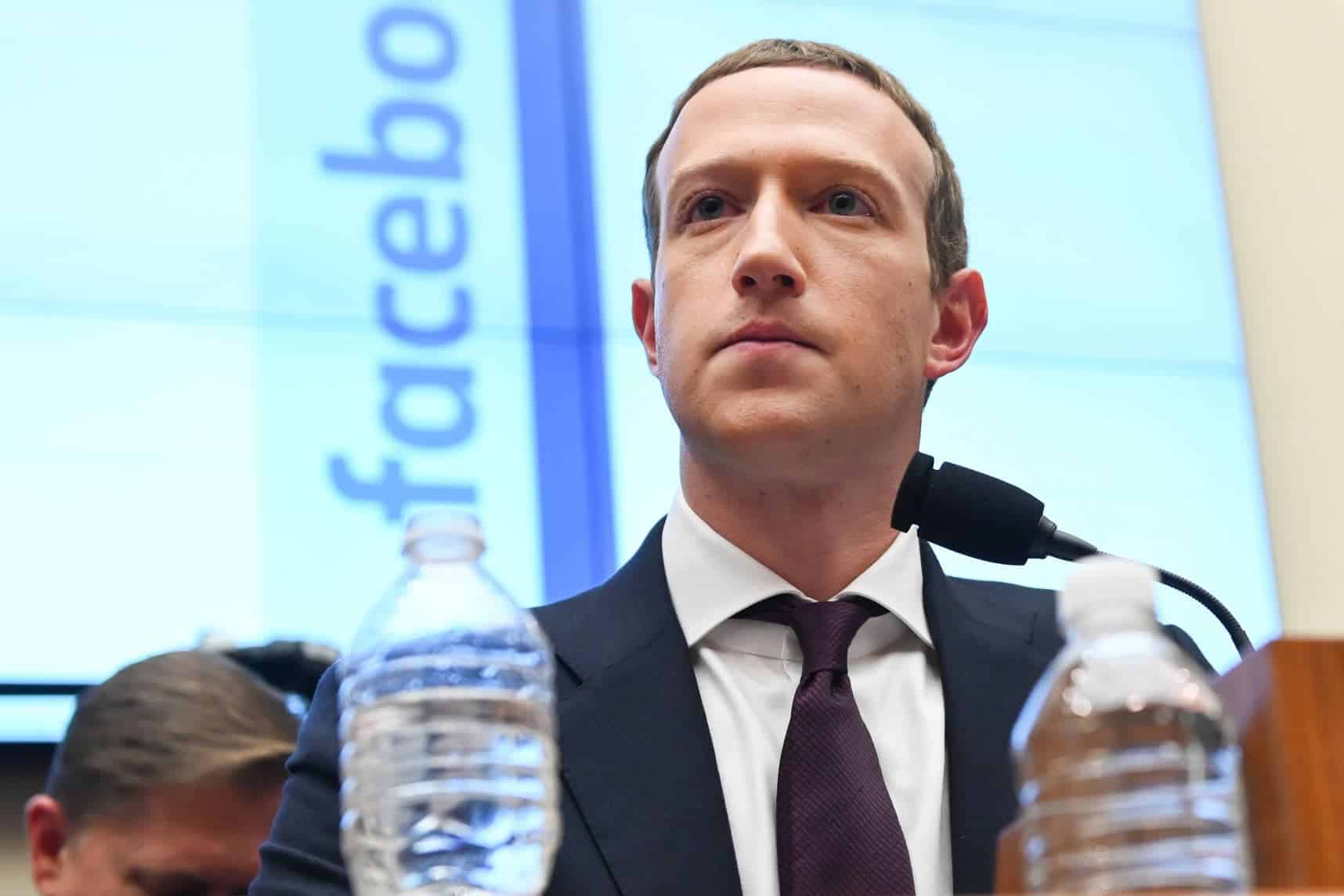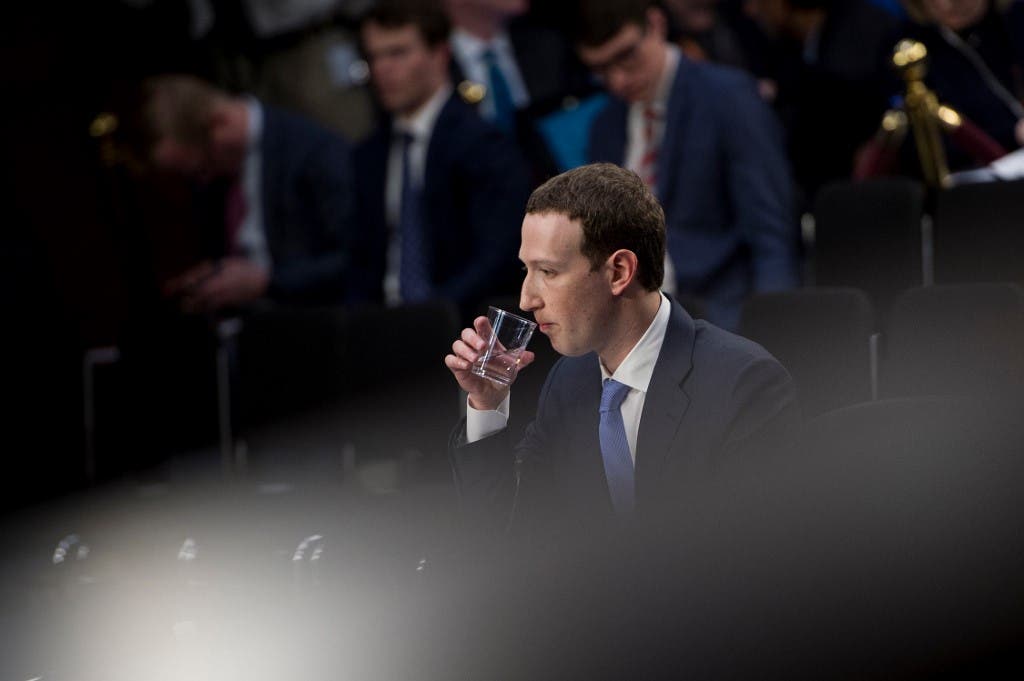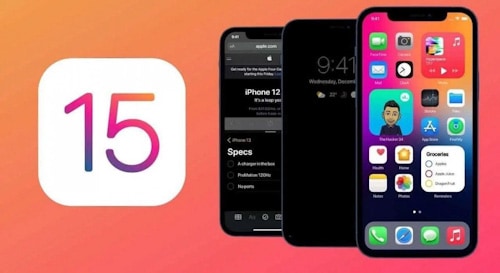إغلاق فيسبوك ..هل نودع فيسبوك إلى الأبد

باتت الدعاوى القضائية القوية المرفوعة ضد موقع التواصل الاجتماعي فيسبوك، من قبل المسؤولين الحكوميين والفيدراليين أخطر تهديد تنظيمي يواجه عملاق التواصل، وذلك وفقاً لتقرير نقلته شبكة CNN الأميركية.
فقد أشارت المعلومات إلى أن الدعاوى القضائية التي رفعت، الأربعاء، أضحت تهدد بإعادة تشكيل إمبراطورية فيسبوك التي تدير اثنين من أكثر التطبيقات شعبية إضافة للموقع الأزرق، وهي واتساب، وإنستغرام بقوام أكثر من مليار مستخدم لكل منها.
فيسبوك يرد
بالمقابل، رد فيسبوك على هذه الاتهامات متعهداً بمعركة قضائية طويلة، ومتهماً المنظمين بتغيير رأيهم في عمليات الاستحواذ بعد سنوات من موافقتهم عليها.

وتعتبر المواجهة القادمة تتويجاً لسنوات من الانتقادات من قبل المشرعين والناشرين والمجموعات الأخرى التي لطالما عبّرت عن استيائها من سياسة فيسبوك بسبب الطرق التي أضر بها بالمجتمع، بحسب ادعاءاتها.
وقد لا تحدد هذه الدعاوى مستقبل الموقع الأزرق فحسب، بل قد تكشف قدرة جهات إنفاذ القانون الحكومية في محاسبة الشركات في العصر الرقمي.
ستغير شكل المنافسة
بدوره، كشف مايكل كاديس خبير مكافحة الاحتكار في مركز واشنطن، وهو مؤسسة فكرية اقتصادية، أنه إذا نجحت القضية فإنها ستغير بشكل كبير شكل المنافسة في الشبكات الاجتماعية، لكنه أضاف أنه على الرغم من المعركة القانونية التاريخية الجارية الآن، فإن النتيجة بعيدة كل البعد عن الوضوح، حيث يجب على المدعين الحكوميين إثبات قضيتهم أولا في معركة شاقة قد تستغرق سنوات لحلها.
مشاهير العالم يعلقون حساباتهم على مواقع التواصل الاجتماعي احتجاجاً على فيسبوك
وحتى إذا ثبتت إدانة فيسبوك بانتهاك القانون، وعليه قررت المحاكم تفكيك الشبكة، فقد لا يكون ذلك كافياً لمعالجة جميع المشاكل، كدور فيسبوك في تسهيل المعلومات المضللة، ونظريات المؤامرة وفقاً للقانون والخبراء.

باختصار لا تتوقع الآراء أن يتغير الكثير في أي وقت قريب.
لا مستحيل
في السياق أيضاً، يواجه مسؤولو الولاية ولجنة التجارة الفيدرالية مهمة صعبة في المحكمة، فهم بحاجة إلى إظهار أن فيسبوك احتكر السوق لأجله، واستخدم هيمنته في طرق أضرت بشكل واضح بالمنافسة والمستهلكين.
وبحسب التقرير، فإن الادعاء الرئيسي في الدعاوى القضائية هو أن فيسبوك أضر بالمنافسة من خلال تحديد المنافسين المحتملين ثم شراؤهم قبل أن تتاح لهم الفرصة لتهديد احتكاره.
وتجادل بأن القوة السوقية المزعومة للموقع أدت إلى تقليل الخيارات للمستهلكين، وكذلك تقليل الابتكار في السوق، كما تقدم الشكاوى دليلاً مفصلا على سوء سلوك فيسبوك المزعوم.
من جهتهم، أكد خبراء قانونيون أن أي قاضٍ ينظر في القضية سيرغب على الأرجح في معرفة ما الذي سيحدث إذا لم يستحوذ فيسبوك على إنستغرام أو واتساب، وإقناع القضاة بهذه الحجة المستقبلية التي لم تحدث أصلاً.
فيما يستعد فيسبوك بالفعل لهذه الحجة، حيث أعلنت الشركة، الأربعاء، في بيان، أنها استثمرت مليارات الدولارات وملايين الساعات لجعل واتساب وإنستغرام خدمات أكثر قيمة مما كانت عليه قبل أن تستحوذ عليهما.
وأضافت: “كنا نعتقد أن هذه الشركات ستكون ذات فائدة كبيرة لمستخدمينا على فيسبوك، وأنه يمكننا المساعدة في تحويلهم إلى شيء أفضل، وقد فعلنا ذلك، والآن يختار الناس في جميع أنحاء العالم استخدام منتجاتنا ليس لأنهم مضطرون لذلك، بل لأننا نجعل حياتهم أفضل”.
ماذا سيحدث لاحقا ؟
يشار إلى أنه وحتى لو وافقت المحكمة على أن فيسبوك انتهك قانون مكافحة الاحتكار، فإن هذا لا يعني بالضرورة أن تفكيك الشركة أمر لا مفر منه، بل هي ببساطة إحدى النتائج المحتملة العديدة، أما القرار النهائي فيعود إلى المحاكم.
وبافتراض أن القاضي وجد أن فيسبوك تصرف بشكل غير قانوني، فإن بإمكانه فرض قيود على سلوك الموقع، مثل مطالبتهم بإخطار الحكومة بكل عملية اندماج مستقبلية، كما يمكنهم طلب نوع من النظام التنظيمي الذي يجبر فيسبوك على التعامل مع بيانات المستخدم بشكل مختلف.
أما بالنسبة للمستهلكين، فقد يكون استقلال تطبيقي واتساب أو انستغرام أكبر تغيير، وهذا يعني أن مارك زوكربيرغ، الرئيس التنفيذي لشركة فيسبوك، لن يستطيع التحكم في الشركات، مما يعني أنه يمكن لمالك مختلف تغيير كل شيء من واجهة المستخدم إلى التكنولوجيا الأساسية.






